Islanders and visitors gathered in the People’s Park following a day of ceremony, re-enactments and remembrance to hear Bailiff William Bailhache speak of the impact five years of Occupation had on the families who stayed in Jersey, those who evacuated to England and those who faced deportation and imprisonment.
Before a crowd of thousands, which included the Countess of Wessex, regional French leaders, the Lieutenant-Governor, General Sir John McColl, senior politicians and Islanders who lived through the Occupation, Mr Bailhache spoke of reconciliation, the optimism that liberation brought and the poisoning effect that desperation can bring.
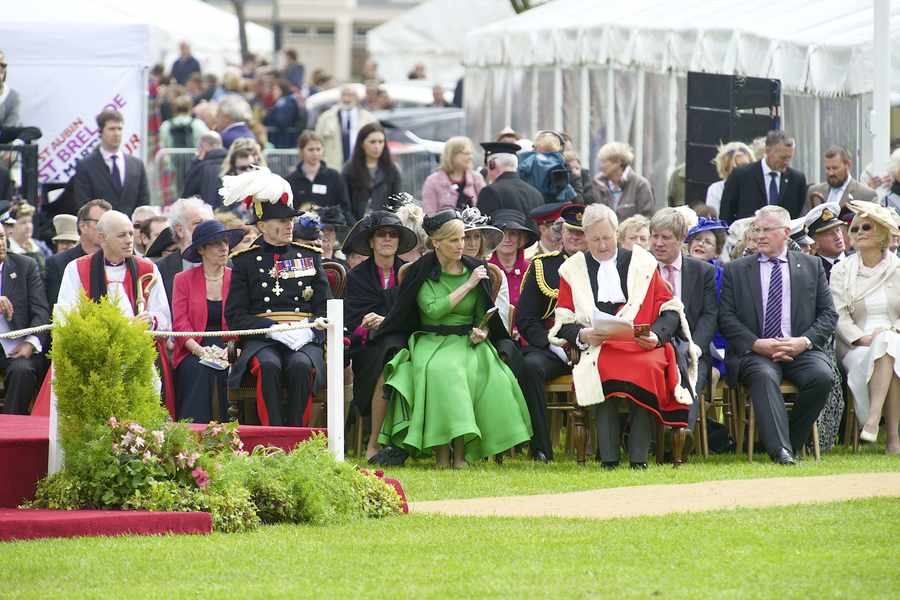
He called Liberation Day Jersey’s ‘national day’ that symbolised freedom, ‘the rebirth of hope for a better future and an end to the divisions which adversity and deprivation can create’.
‘It is sometimes said that Liberation Day belongs to those who were here in Jersey on 9 May 1945,’ the Bailiff told the crowd.
‘I think it belongs to others too. The day is important not only for those who suffered the Occupation here as children, but also for the families of those who evacuated, whether for safety or to join His Majesty’s Forces in defence of the realm, and were unable to return to their homes and families for five years and to those who were deported.’
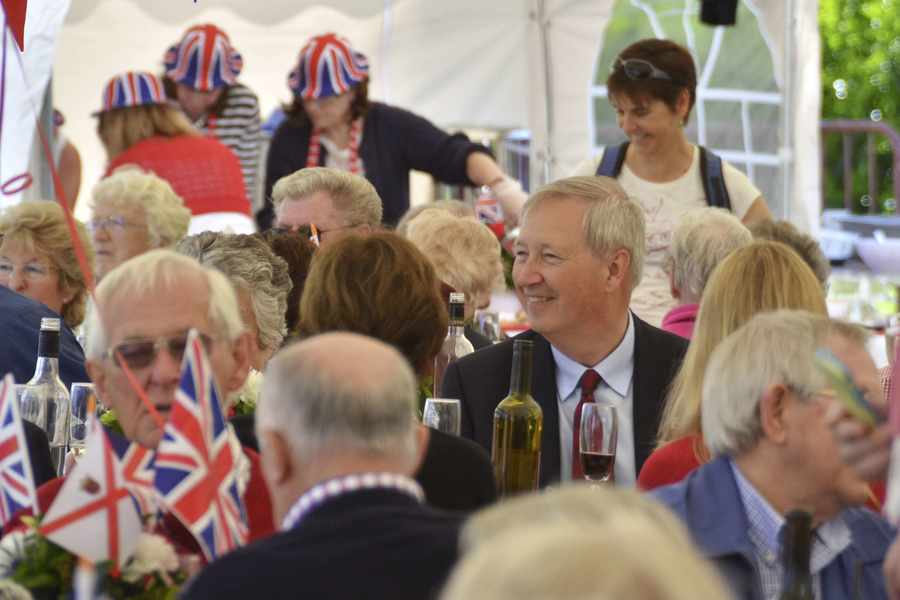
Mr Bailhache also said that the spirit of renewed hope felt on Liberation Day could be used to foster excitement and enthusiasm to make Jersey a safe, inclusive and prosperous community. In windy conditions he welcomed leaders from Bad Wurzach, where hundreds of Channel Islanders were interned during the Second World War, French dignitaries including the Mayor of Avranches – the town twinned with St Helier – and visitors from further afield such as Commander Igor Elkin, Assistant Naval Attaché to the Embassy of the Russian Federation in the UK.
‘It is a pleasure to have all these friends here today as our guests,’ Mr Bailhache said.
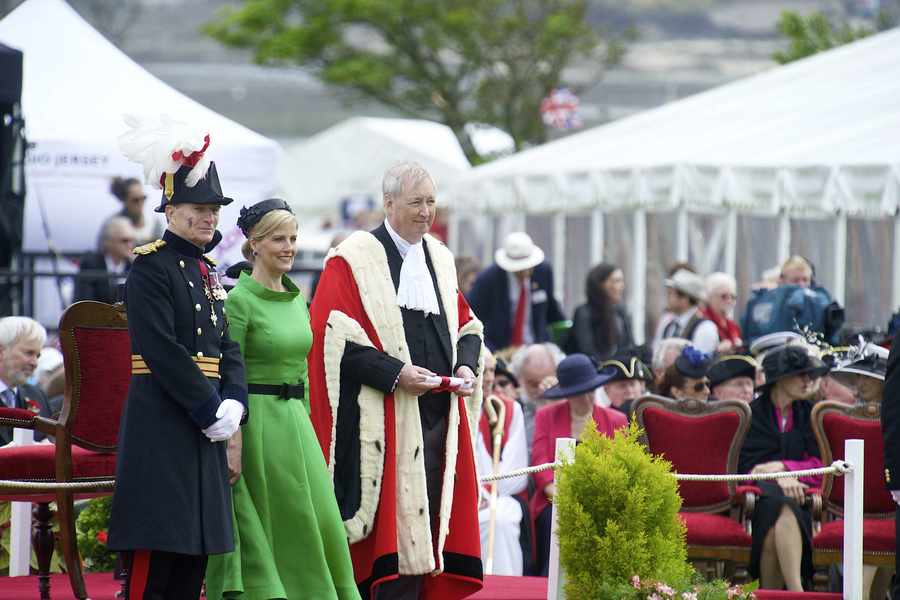
Towards the end of his address the Bailiff added: ‘As a matter of history Liberation Day is directly about all three groups – evacuees, deportees and those suffering the Occupation in Jersey – and the 70th anniversary of liberation naturally has these three groups as its primary focus.
‘Nonetheless, our national day is more than this. It is informed by history, but it looks forward as well as back. Liberation Day enables us to recognise the sacrifices of many between 1940 and 1945, sometimes, indeed, the ultimate sacrifice.
‘It enables us to give thanks for liberation from the evil regime which then had its grasp over an honourable country and its people.’
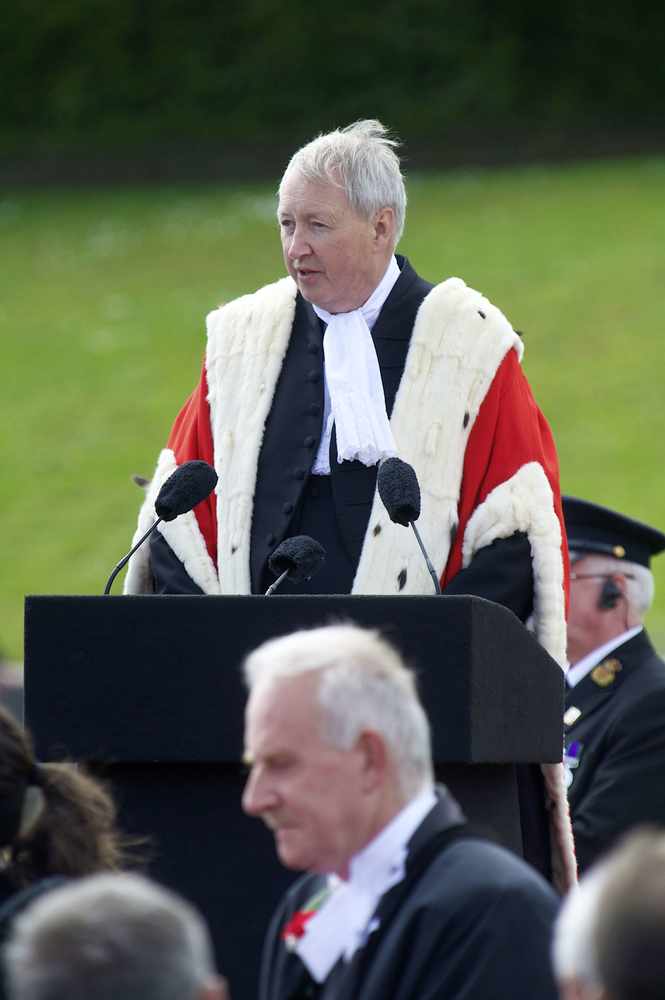
Your Royal Highness, Your Excellency, Chief Minister, ladies and gentlemen.
A man is trying to light a cigarette but his lighter fails. He asks you if you can give him a match. Your human instinct is to say ‘Yes of course’. But you turn away, say nothing because this is March 1941 and you are British living in Jersey and he is a German.
So you are angry because you have just been petty; and angry because he just shouldn’t be here; and frightened in case he is one of those who abuses power and you simply do not know what the consequences of that might be.
On 9 May by mid-afternoon a large crowd had gathered in the area of the Pomme d’Or and indeed the re-enactment ceremony, which was conducted this morning, show the events that followed.
All the German soldiers who had been billeted there and in the Royal Yacht Hotel were ordered to be out of town by that evening.
A contemporary diarist recalls that “Some Jerry bags – the name given to a girl or woman who had been friendly or associated with the Germans, were beaten up pretty badly.
Some had their clothes torn off and had to find their way home …………..with a mob following behind”.
The same diarist described the events of June 1940 in this way:- “Hundreds then rushed to register for evacuation which lasted Thursday, Friday and Saturday. As I had a pass, I saw practically the whole of the evacuation and was really surprised to see some of the best known residents fleeing like rats”.
These are three stories of the Occupation to set alongside the reenactment to which I have just referred.
It is somehow comforting to concentrate on that familiar re-enactment story, isn’t it? Those who were here on 9th May 1945, if they are old enough, will remember people smiling and laughing and a huge sense of relief, of joy and of optimism.
But those three stories tell their own rather harsher tales of some of the effects of invasion and occupation, when ordinary people do things they would not normally do.
It is important to recognise that when times are hard people can act both heroically or less than heroically, and sometimes the elements of a person’s character or their circumstances are mixed up only slightly differently to produce one outcome or the other.
If we recognise that, it is possible to reconcile ourselves to each other, whether those points of difference arose in 1940 or at any time thereafter. In this the 70th anniversary of Liberation we recognise that 9 May has become Jersey’s national day.
It is a special day because it symbolises freedom, the re-birth of hope for a better future and an end to the divisions which adversity and deprivation can create.
We remember that in the years that immediately followed Liberation we saw the excitement of a generation- for most of us our parents or grandparents – building a new future.
It is sometimes said that Liberation Day belongs to those who were here in Jersey on 9th May 1945.
I think it belongs to others too – the day is important not only for those who suffered the Occupation here as children, but also for the families of those who evacuated, whether for safety or to join His Majesty’s Forces in defence of the realm and were unable to return to their homes and families for five years; and to those who were deported.
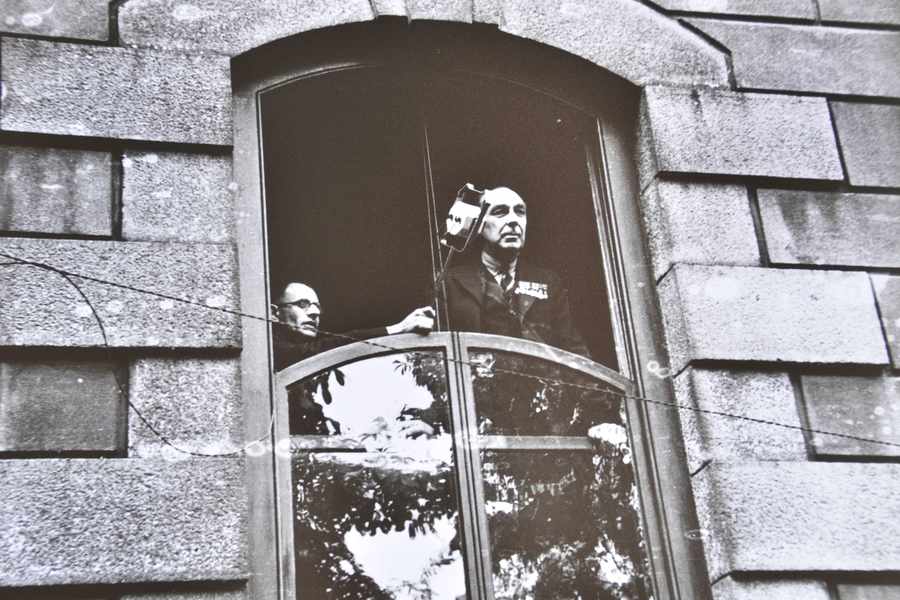
In the same breath that I mention those deportees, I am delighted to welcome representatives of the Bad Wurzach community who have come to Jersey for these celebrations. I am also very pleased to welcome Madame Anne, the Vice-Présidente de la Région Basse Normandie, Senator Bas, le Président du Conseil départmentale de la Manche and his predecessor Monsieur Jean François le Grand and their colleagues; Monsieur Nicholas, the Mayor of Avranches, with which St Helier is also twinned and his family; Minister Valery Dougan, Deputy Head of Mission to the Embassy of Belarus in the UK; Commander Igor Elkin, Assistant Naval Attaché to the Embassy of the Russian Federation in the UK and Dr Rob Smith and Dr Maggie Smith, representing The International Brigade Memorial Trust. It is a pleasure to have all these friends here today as our guests.
So as a matter of history, Liberation Day is directly about all three groups – evacuees, deportees, and those suffering the Occupation in Jersey – and the 70th anniversary of liberation naturally has these three groups as its primary focus.
Nonetheless, our national day is more than this.
It is informed by history but it looks forward as well as back. Liberation day enables us to recognise the sacrifices of many between 1940 and 1945, sometimes indeed the ultimate sacrifice.
It enables us to give thanks for Liberation from the evil regime which then had its grasp over an honourable country and its people. For those who are younger, we give meaning to our national day if we use it to rekindle our excitement and enthusiasm to make this Island inclusive, safe, optimistic and prosperous.
Your Royal Highness the people of Jersey are so pleased that you have been able to come here today, representing Her Majesty the Queen, to help us to celebrate Liberation Day.
Our celebrations are slightly removed from those which took place on VE Day, because on 8 May, Liberation was eagerly anticipated but it had not happened and our people still faced uncertainty.
One has only to look at the faces of those in the Royal Square on 8th May 1945, shown on the back of today’s programme.
They show anxiety and disappointment, expressions in which desperation for freedom is mixed with worry that there may yet be a pitched battle between German and British forces with destruction and civilian casualties.
The smiles on the front cover in the days immediately following 9 May show a different picture.
They demonstrate that 9 May is indeed a life-enhancing day.
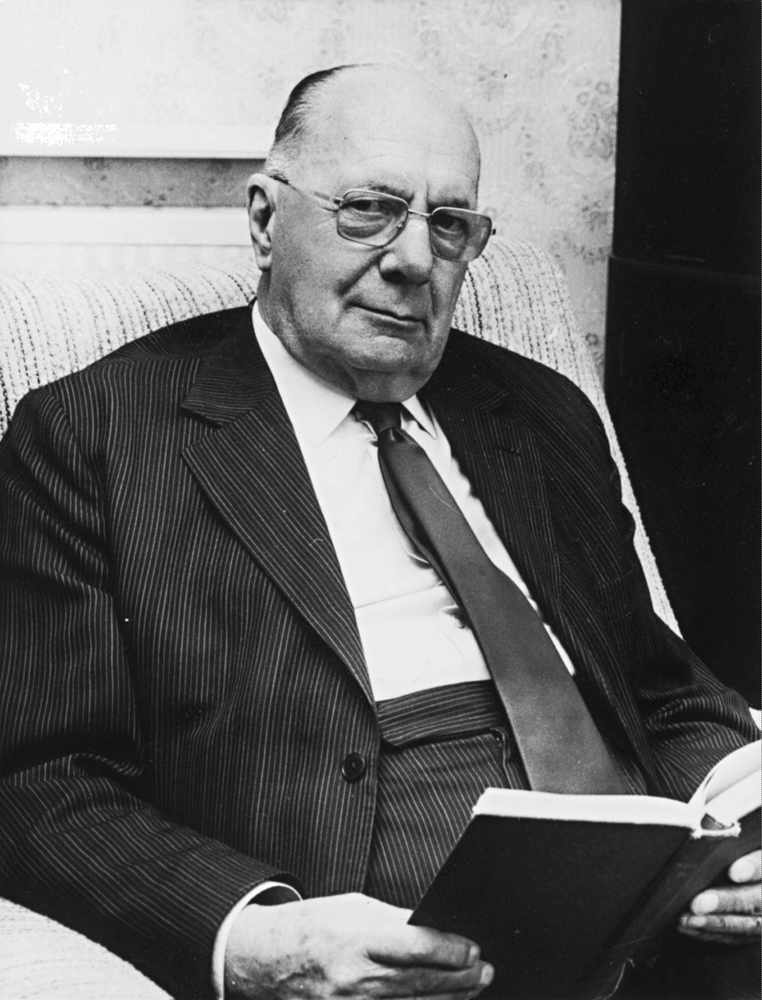
8 May 1945
By 3 o’clock thousands had gathered to hear Mr. Churchill make his historic statement.
The greatest crowd, of course, was in the Royal Square, which, with the windows of surrounding houses, was packed with listeners.
As the Town Church clock struck three a cheer went up at the announcement that Mr. Churchill was to speak; his statement was punctuated by cheers, especially when he referred to ‘our dear Channel Islands’, and when, at the conclusion, the Bailiff hoisted the Union Jack and Jersey flag over the Courthouse, enthusiasm knew no bounds, and many wept unashamedly
9 May 1945
On arrival at the Harbour Office our first ‘liberators’ went upstairs and hung a Union Jack out of one of the windows; there was deafening cheers, the National Anthem was sung, and the toughest witness could not restrain his emotion…
Many Jersey boys were among those who arrived, and each and every one received a great reception – cheers, cheers, and more cheers.
The first Jersey officer to land was Captain Hugh Le Brocq, who left the Island with the Militia in 1940, and to him fell the happy task of hoisting the Union Jack on Fort Regent…






